The Album Considered
Subscribe to my newsletter for weekly updates.
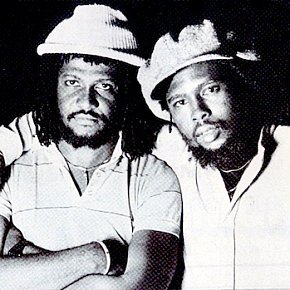
VARIOUS ARTISTS; SLY AND ROBBIE PRESENT TAXI, CONSIDERED (1981): Reggae inna state of change
16 Nov 2020 | 2 min read
In the early Eighties reggae was reeling after the death of Bob Marley, the figurehead of style he popularised and, for the great middle-ground audience, was the genre's most identifiable figure. But when reggae had broken in the early Seventies on the back of Marley and the Wailers' upward trajectory, it was apparent to close observers that the tiny island of Jamaica was awash with talent:... > Read more
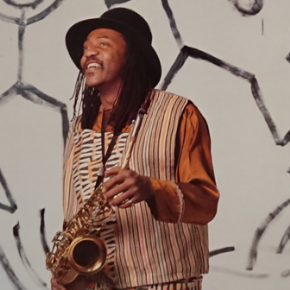
OLIVER LAKE and JUMP UP: PLUG IT, CONSIDERED (1983): Forget art and argument, let's dance
9 Nov 2020 | 4 min read
First of all, you have to remember the period in which this album by saxophonist Oliver Lake arrived: Wynton Marsalis was making his career run on the back of his neo-conservative stance (hailing Ellington and early Miles, dismissing post-bop, fusion and free jazz etc) and in his corner he had the bullish critic and cheerleader Stanley Crouch. Marsalis being articulate, sharp, handsome and... > Read more
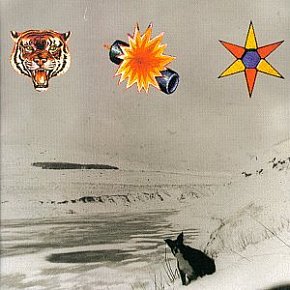
THE BETA BAND: THE 3 EPs, CONSIDERED (1998): The four amigos from Glasgow
3 Nov 2020 | 2 min read
By the time Scotland's Beta Band got to their self-titled debut album in '99, many writers and fans felt they had already done their best work. It has been on three separate EPs – Champion Versions ('97), The Patty Patty Sound and Los Amigos Del Beta Bandidos (both '98) – which had enjoyed such a cult following that they were repacked as The 3 EPs which took their slacker... > Read more
Dry the Rain

RONNIE SUNDIN with WILL JESS and his JESTERS: RONNIE, CONSIDERED (1960)
19 Oct 2020 | 3 min read
Although we are right to celebrate our musical pioneers and predecessors, there is serious danger of falling into the myth of exceptionalism, the belief that New Zealand artists were all pretty great and those obscure albums being resurrected from secondhand stores are lost works of art. Well let's be frank, some artists were mediocre and very few albums from the Sixties particularly... > Read more
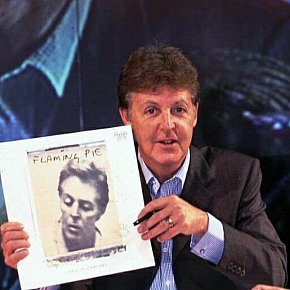
PAUL McCARTNEY: FLAMING PIE, CONSIDERED (1997): The man in the mirror stares himself down
12 Oct 2020 | 5 min read
The Eighties was a tough decade for many who had come to attention in the Sixties: any Best of 80s Bob Dylan compilation is scraping around; singers like Dusty Springfield, Cilla Black and Dionne Warwick all but disappeared for a while; Van Morrison's album were patchy, the Stones recycled themselves to lesser effect and most people couldn't name a Kinks album in the Eighties. And what of... > Read more
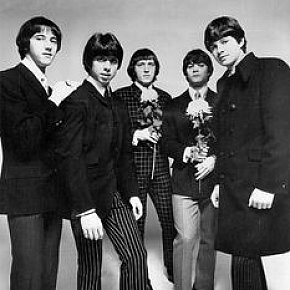
THE BUCKINGHAMS: KIND OF A DRAG, CONSIDERED (1967): The British Invasion from the Windy City
5 Oct 2020 | 3 min read
With their ever-so British name, Carnaby St attire and fashionably Beatles-style hair – not to mention their upbeat pop – the Buckinghams should have been contenders in the mid-late Sixties. And in a modest way they were: they enjoyed two top 20 hits here (Kind of a Drag in '67, Susan the following year) and five in the US (those two, plus Don't You Care, Mercy Mercy Mercy and... > Read more
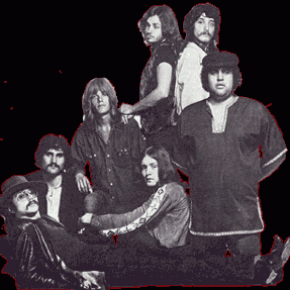
RHINOCEROS: SATIN CHICKENS, CONSIDERED (1969): Made like the Monkees, and not built to last
2 Oct 2020 | 6 min read
If a supergroup is made of people who have had acclaimed prior form, what do we call a group which did nothing at the time but whose members went on to bigger and better things? Is that like a preparatorygroup? We've encountered their likes before in bands such as the Funky Kings, but Rhinoceros out of LA also have an interesting second-tier backstory – a kind of... > Read more
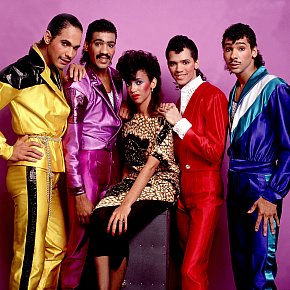
DeBARGE: IN A SPECIAL WAY, CONSIDERED (1983): Love in the school corridors
25 Sep 2020 | 2 min read
In this on-going series of articles about albums randomly pulled off the Elsewhere shelves for consideration, they've all made sense and have a memory/backstory somewhere. Except, so far, this one. In a Special Way on Motown by the dance/disco r'n'b-cum-ballad band from Detroit is a mystery to me: I have no idea why I have it or where I got it from. It is in mint condition... > Read more
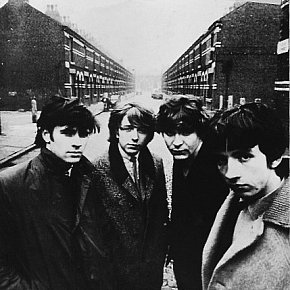
THE MERSEYBEATS: THE MERSEYBEATS, CONSIDERED (1964): Really mystified . . . and the mystifying rest of it
21 Sep 2020 | 4 min read
Across a number of illustrated articles, Elsewhere has shown how Beatles' album covers became so iconic that they would be copied, parodied and paid earnest homage to. If their debut Please Please Me caused no visual ripples at the time (although it did subsequently), With the Beatles of 1963 was a real game-changer. By this time they were Enormously Famous in Britain (America would... > Read more

ELECTRONIC ART ENSEMBLE: INQUIETUDE, CONSIDERED (1982): Electric music for the mind and boredom
18 Sep 2020 | 2 min read
In the early Eighties the great American jazz labels like Columbia/CBS and Verve were struggling: at CBS Miles Davis wasn't selling and Wynton Marsalis was only just starting his career; Verve was undergoing constant business and takeover issues to its detriment. In Europe however ECM was flourishing, recording the kind of jazz which appealed to a young, educated, white audiences and... > Read more
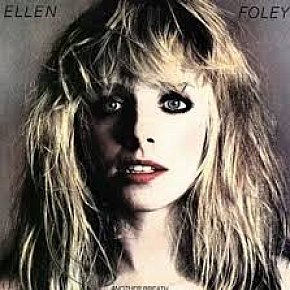
ELLEN FOLEY; SPIRIT OF ST LOUIS, CONSIDERED (1981): Here, there and all over the place
14 Sep 2020 | 3 min read
In the slipstream of their success with London Calling, while battling with CBS, changing managers and wresting scattershot material for what would become their triple album Sandinista!, the Clash still found time for other projects. Among them they helped out their friends Pearl Harbor and Mikey Dread on their albums, and most notably were all over Spirit of St Louis, the second album by... > Read more
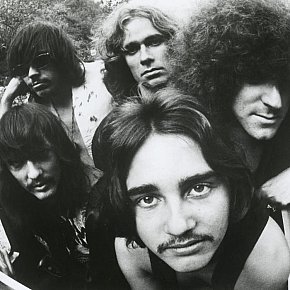
STEPPENWOLF: LIVE, CONSIDERED (1970): More but not necessarily better
10 Sep 2020 | 3 min read | 2
Of the very few people I know who have Steppenwolf albums, none have any other than the three I have owned: their self-titled debut (which featured Sookie Sookie, Born to be Wild and The Pusher); The Second (which included Magic Carpet Ride) and this, their first live album, which was a double of course and had all those hits, most of them stretched out a bit. No one seemed to have their... > Read more
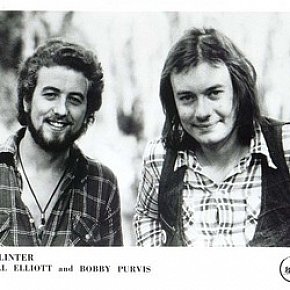
SPLINTER: THE PLACE I LOVE, CONSIDERED (1974): And introducing . . . Hari Georgeson
7 Sep 2020 | 4 min read | 1
As with the ill-fated Badfinger, the duo of Bill Elliott and Bobby Purvis – known as Splinter – enjoyed the patronage of various Beatles, in their case particularly George Harrison. And like Badfinger, they were spotted by Beatles factotum and friend Mal Evans who brought them to Harrison's attention in the wake of the Beatles' break-up and trouble with Apple. By the early... > Read more
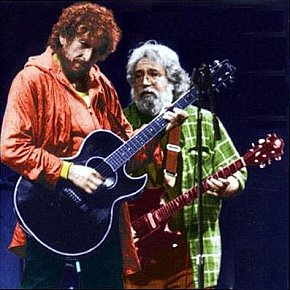
BOB DYLAN/GRATEFUL DEAD: DYLAN AND THE DEAD, CONSIDERED (1989): He's got a lotta nerve . . .
31 Aug 2020 | 4 min read | 1
By critical and popular consensus, when Bob Dylan teamed up with the Grateful Dead for a tour in the late Eighties it was a terrible mismatch and out of it came the live album Dylan and the Dead, widely considered among the worst – if not the worst – album of Dylan's career. Given their collective memories of music from before rock'n'roll (country, bluegrass and so on) and a... > Read more

JOHN MAYALL: THE TURNING POINT, CONSIDERED (1969): Blues powered down
24 Aug 2020 | 3 min read | 1
One afternoon in late '69, while walking in central London, I saw a striking album cover in the window of a record shop across the road. It looked to me like Brian Jones blowing a harmonica, and for a moment I hoped it might be a posthumous blues album by the founder of the Rolling Stones. Still looks like that to me today, more than half a century on. Hard to shake first impressions.... > Read more
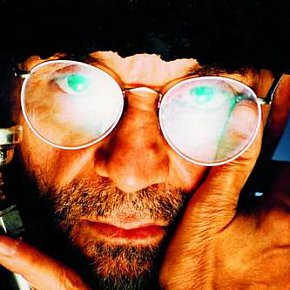
TOMASZ STANKO: LONTANO, CONSIDERED (2006): Emotion from a distance
31 Jul 2020 | 3 min read
Rock audiences have a forgivable problem with jazz groups: the membership of jazz outfits can just keep changing. If you like the Arctic Monkeys chances are you can expect the line-up not to change much over the years. Rock bands -- for the most part -- have an enviable stability which they guard jealously. Consider how long it took for Rolling Stone Ron Wood to be accepted as fully-fledged... > Read more

THE ESCORTS: 3 DOWN 4 TO GO, CONSIDERED (1974): Souls on ice
27 Jul 2020 | 2 min read
It's unlikely you would confuse this group with the Merseybeat-era moptop band of the same name. The seven soul brothers here – who tap the great James Brown, Temptations, Smokey and the Miracles and a bit of the Stylistics and Floaters -- had done, or were serving time, at Rahway prison in New Jersey and the album title refers to the countdown on a sentence. The liner notes say... > Read more

YOKO ONO: THE REMIX ALBUMS, CONSIDERED (1996 – 2016): Offering her art to others
24 Jul 2020 | 5 min read
Given the sexist, racist and hurtful personal comments she received when she arrived in popular culture at the side of John Lennon, Yoko Ono was certainly entitled to release an album under the title Yes I'm a Witch. The wonder is that it took her so long. Yes I'm A Witch arrived in 2007 and Ono told Mojo's Mark Paytress she was happy with that title. “When people kept calling... > Read more
Rising (Thurston Moore remix, 1996)
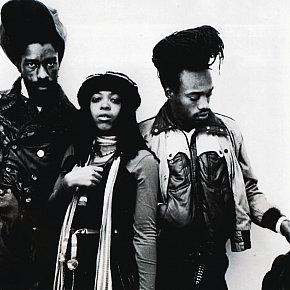
BLACK UHURU: RED, CONSIDERED (1981): Reggae on the forefront
16 Jul 2020 | 4 min read | 1
After the death of Bob Marley in May 1981, it seemed the biggest Jamaican reggae band in contention as his successor could be Black Uhuru. There was certainly a lot of their fine and sometimes fiery music about. The previous years had seen release of a self-titled collection of early singles which included new songs alongside some of their 45rpm classics: the broody Guess Who's Coming... > Read more
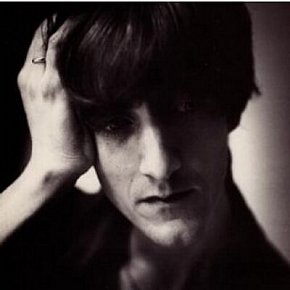
THE DURUTTI COLUMN: THE GUITAR AND OTHER INSTRUMENTS, CONSIDERED (1987): Man and machine music
3 Jul 2020 | 3 min read
Manchester's Vini Reilly -- who steered Durutti Column through scores of studio albums and many side-projects from the late Seventies until fairly recently -- probably only ever earned enough to pay the mortgage . . . and never enough to pay it off. Respected, nervous, anorexic and almost popular sometimes, he was always his own man. Reilly – in his mid Sixties at... > Read more
